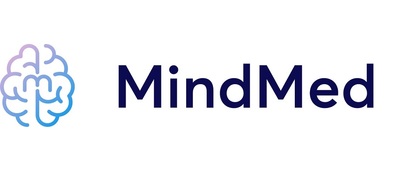MindMed's LSD Neutralizer Study Begins
MindMed has initiated a study on its LSD neutralizer technology, aimed at reducing the effects of LSD during therapy sessions. Collaborating with University Hospital Basel's Liechti Lab, this Phase 1 trial examines the impact of ketanserin, a 5-HT2A receptor antagonist, to potentially serve as an emergency 'off-switch' for psychedelic-assisted therapies. Results are anticipated by year-end, with implications for improving patient safety and outcomes. MindMed aims to innovate its LSD-assisted therapies through Project Lucy, targeting anxiety disorders and enhancing therapeutic experiences.
- Initiating a Phase 1 clinical trial for LSD neutralizer technology may lead to safer therapeutic applications.
- Collaboration with University Hospital Basel enhances research credibility.
- Potential to mitigate fears associated with 'bad trips,' improving patient and therapist confidence.
- None.
Insights
Analyzing...
Potential Emergency Off-Switch for Psychedelic Assisted Therapies
BASEL, Switzerland, Feb. 17, 2021 /PRNewswire/ -- MindMed (NEO: MMED), (OTCQB: MMEDF), (DE: MMQ), a leading psychedelic medicine biotech company, announced the start of a study for its LSD neutralizer technology intended to shorten and stop the effects of an LSD trip during a therapy session. This discovery, when further developed, may act as an emergency 'off-switch' for psychedelic assisted therapies.
MindMed is working in collaboration with University Hospital Basel's Liechti Lab on the Phase 1 double-blind, placebo-controlled, random-order 2-period crossover design clinical trial evaluating the effect of ketanserin on the acute response to LSD in healthy subjects after LSD administration. The study is being conducted at the University Hospital Basel Liechti Lab and is expected to be completed by year-end.
MindMed is actively pursuing the development of LSD assisted therapies through its Project Lucy, including a Phase 2b trial for anxiety disorders planned to be conducted fully through the FDA pathway. As a result of focusing on LSD assisted therapies, MindMed is looking to innovate additional features that can make its experiential therapies most suitable for a therapeutic setting and thereby create the best possible patient journey and experience.
Dr Matthias Liechti commented, "Based on preclinical and ongoing clinical research we expect highly relevant results from this proof of concept study in healthy subjects. If working as expected and fully developed, the approach would allow treatment of patients with LSD while having an option to end an experience if considered necessary by the patient or therapist. Such a technique will further increase the safety of using LSD in a therapeutic setting and will provide a tool for reducing and ending psychedelic experiences induced by LSD or possibly other psychedelics."
LSD is thought to induce its prototypical psychedelic effects primarily via stimulation of the serotonin 5-HT2A receptor. As shown in studies in healthy volunteers, administration of the 5-HT2A receptor antagonist ketanserin prior to the administration of LSD almost completely prevents the acute effects of LSD. However, it is not clear whether an LSD experience can also be attenuated and shortened using ketanserin administration after the LSD administration, once the psychedelic effects have fully established.
The study hypothesis is that ketanserin (40 mg), administered to healthy humans one hour after taking LSD, significantly shortens and reduces the acute subjective effects of the LSD (100 μg) compared to LSD alone (100 μg) followed by a placebo. Such a finding would confirm a primarily competitive antagonism of ketanserin and LSD at the 5-HT2A receptor in vivo and indicate that LSD produces its psychedelic effects only when present at the receptor and that the LSD-receptor interaction can be reversed pharmacologically and relatively rapidly. Ketanserin was discovered at Janssen Pharmaceuticals in 1980 and has been actively marketed as an antihypertensive agent. This study will support the patent application that was filed last year (preserving all worldwide rights) for a neutralizer technology intended to shorten and stop the effects of an LSD trip during a therapy session.
MindMed Executive President Dr. Miri Halperin Wernli said "One of the many fears and stigmas associated with psychedelics are rare happenings of 'bad trips'. We are seeking to equip therapists and other medical professionals with the resources and technology to better control the effects of dosing LSD, and other 5-HT2A agonists such as psilocybin, in a clinical setting to improve the patient experience and outcomes. This advancement could pave the way for greater therapeutic applications of LSD to really allow our brain to reach states of complexity beyond that which it has ever experienced in normal daily life. We believe that this technology, when further developed, could in the future be marketed as an added feature to shorten a therapy session and stop a session if it is so chosen by the patient or the therapist. With this additional potential 'freedom to operate' known to the patient, it may enable the brain to function in a way beyond what anatomy usually allows."
About MindMed
MindMed is a psychedelic medicine biotech company that discovers, develops and deploys psychedelic inspired medicines and therapies to address addiction and mental illness. The company is assembling a compelling drug development pipeline of innovative treatments based on psychedelic substances including Psilocybin, LSD, MDMA, DMT and an Ibogaine derivative, 18-MC. The MindMed executive team brings extensive biopharmaceutical experience to the company's groundbreaking approach to developing the next-generation of psychedelic inspired medicines and therapies.
MindMed trades on the Canadian exchange NEO under the symbol MMED. MindMed is also traded in the United States under the symbol MMEDF and in Germany under the symbol MMQ. For more information: www.mindmed.co
MindMed Forward-Looking Statements
This press release includes forward-looking statements that involve risks and uncertainties relating to future events and performance of Mind Medicine (MindMed) Inc. ("MindMed"), and actual events or results may differ materially from these forward-looking statements. Words such as "anticipate," "expect," "intend," "plan," "believe," "seek," "estimate," variations of such words, and similar expressions are intended to identify such forward-looking statements, although not all forward-looking statements contain these identifying words. These statements concern, and these risks and uncertainties include, among others, MindMed's and its collaborators' ability to continue to conduct research and clinical programs, MindMed's ability to manage its supply chain, product sales of products marketed by MindMed and/or its collaborators (collectively, "Products"), and the global economy; the nature, timing, and possible success and therapeutic applications of Products and Product candidates and research and clinical programs now underway or planned; the likelihood, timing, and scope of possible regulatory approval and commercial launch of Product candidates and new indications for Products; unforeseen safety issues resulting from the administration of Products and Product candidates in patients, including serious complications or side effects in connection with the use of MindMed's Products and product candidates in clinical trials; determinations by regulatory and administrative governmental authorities which may delay or restrict MindMed's ability to continue to develop or commercialize Products; ongoing regulatory obligations and oversight impacting Products, research and clinical programs, and business, including those relating to patient privacy; uncertainty of market acceptance and commercial success of Products and Product candidates and the impact of studies on the commercial success of Products and Product candidates; the availability and extent of reimbursement of Products from third-party payers, including private payer healthcare and insurance programs, health maintenance organizations, pharmacy benefit management companies, and government programs such as Medicare and Medicaid; competing drugs and product candidates that may be superior to Products and Product candidates; the extent to which the results from the research and development programs conducted by MindMed or its collaborators may be replicated in other studies and lead to therapeutic applications; the ability of MindMed to manufacture and manage supply chains for multiple products and product candidates; the ability of MindMed's collaborators, suppliers, or other third parties (as applicable) to perform manufacturing, filling, finishing, packaging, labelling, distribution, and other steps related to MindMed's Products and product candidates; unanticipated expenses; the costs of developing, producing, and selling products; the ability of MindMed to meet any of its financial projections or guidance and changes to the assumptions underlying those projections or guidance; the potential for any license or collaboration agreement to be cancelled or terminated without any further product success; and risks associated with intellectual property of other parties and pending or future litigation relating thereto, other litigation and other proceedings and government investigations relating to MindMed and its operations, the ultimate outcome of any such proceedings and investigations, and the impact any of the foregoing may have on MindMed's business, prospects, operating results, and financial condition. Any forward-looking statements are made based on management's current beliefs and judgment. MindMed does not undertake any obligation to update publicly any forward-looking statement.
Media Contact: mindmed@150bond.com
![]() View original content to download multimedia:http://www.prnewswire.com/news-releases/mindmeds-lsd-neutralizer-study-begins-301229735.html
View original content to download multimedia:http://www.prnewswire.com/news-releases/mindmeds-lsd-neutralizer-study-begins-301229735.html
SOURCE Mind Medicine (MindMed) Inc.








